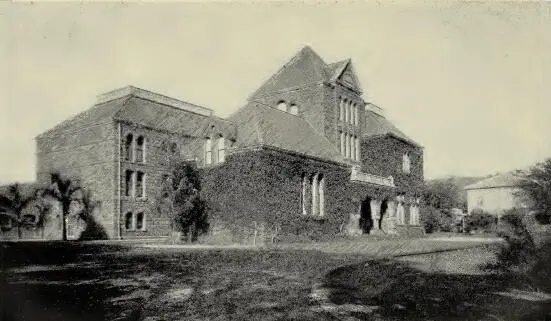It was not long, however, that any of our party could indulge in recreation, for the rapid failure of the health of the king rendered it necessary for some one of us to be always watching with him. When it came to be the turn of Queen Emma, she urged him in plain language to nominate her to assume the reins of government at his decease; but his determination appeared to be unchanged to leave the selection to the people. Even when I was by his bedside, doing my duty as one of those chosen by birth to stand near during his dying hours, Queen Emma did not cease from her persistency, but again broached the subject of succession, and spoke to the king of the great importance to his people of naming an heir to the throne. The indelicacy of this persuasion from a Hawaiian point of view will be understood by those who have studied our national customs. He made her no reply, but turned from her as he lay on his bed. It was considered best that he should return to Honolulu, to which reluctantly he consented; so, accompanied by the chiefs and their attendants, we returned with him home. As long as he retained consciousness he insisted that the selection of a successor should be left to the people, and even his ministers were powerless to change his determination; and with a full intention of allowing the succession to be settled by ballot rather than by his constitutional right of appointment, he passed away, apparently without pain. Indeed, so peaceful was his end that the appearance of death began long before its reality, and the marshal of the realm, supposing the king to be dead, undertook the draping of the palace; scarcely had the long festoons of crape been hung upon the outer walls when it was discovered that the king was living. It was not thought best to remove these emblems of mourning, for their use might be appropriate at any moment; so an attempt was made to cover or conceal them and they were really in position about two day before the final scene.
Although Queen Emma was not named by the king as his successor, it was found that he had liberally remembered her in his will. A most important proviso of that instrument was the fund left for the founding of the Lunalilo Home for aged and indigent Hawaiians. This institution admits those of both sexes, the men being in one department and the women in another. It is well managed, and its inmates are happy and contented, so much so, indeed, that they often conduct themselves as if youth and hope were still their portion, and from the sympathy of daily companionship they wish to enter the closer tie of matrimony. This they are permitted to do without severing their connection with the institution, and there is a separate department provided for those who have thus agreed to finish their journey of life together.
 LUNALILO HOME FOR THE POOR
LUNALILO HOME FOR THE POOR
Table of Contents
THE contest for the succession which resulted in the elevation of my family – the Keaweaheulu line – to royal honors is of course a matter of history. Since the king had refused to nominate his successor, the election was with the legislature. It must not be forgotten, however, that the unwritten law of Hawaii Nei required that the greatest chief, or the one having the most direct claim to the throne, must rule. The legislature could not choose from the people at large, but was confined to a decision between rival claimants having an equal or nearly equal relation in the chiefhood to the throne.
Queen Emma's claim was not derived through her own family, but as the widow of Liholiho, one of the Kamehamehas. The great-grandfather of Kalakaua (the other claimant), and Kamehameha I. were own cousins; and, as I have already noted, it was to this anscestor and to other chiefs of our family that the late dynasty had owed its succession, and the uniting of the kingdoms of Hawaii under one government.
Now, it is not denied that Queen Emma had a rightful candidacy. It has already been seen that the king hesitated, and finally failed to decide between her rights and those of our family to succession. It was not the duty of the legislature to determine the question.
From the fact that Queen Emma was a resident of Honolulu, the capital, and the immediate scene of the election, has arisen the impression that she was the real choice of the Hawaiian people. She naturally had about her a considerable personal following, scheming for office, and a large body of retainers, all within the city and environs; and hence could there make a formidable showing. She had also, of course, partisans here and there throughout the Islands. Her canvass was, however, limited almost exclusively to intrigue within the city, while Kalakaua and his friends sought the suffrages of the country people and their representatives. Each party was vigorous in its own way, and there was great excitement. It cannot be said that either party felt much assurance as to the result, until the vote was actually declared. But Queen Emma herself seems never to have doubted that she must be the chosen sovereign; and it was policy for her advisers to flatter her expectation, upon which their own fortunes hung. For this she should rather have our sympathy than our reprobation. Her active candidacy was legitimate, and compatible with public spirit. But for her subsequent course there is little justification. Her disappointment assumes too personal a manifestation to be excused in the representative of royal responsibilities. It is therefore because of its political consequence that I deem it proper to record here what will doubtless seem to the public, from any other point of view, a mere detail of feminine pettiness.
It is a fact that Queen Emma ardently desired and hoped to succeed King Lunalilo, and that during the time that he lay unconscious, with life barely perceptible to those of us who stood nearest him, she was busily whispering among her friends the details of her plans. I was presently informed that she purposed to supersede General Dominis by Mr. F. S. Pratt as governor of Oahu, and that various other government positions had been promised. But if our party attended with its eyes to the intrigue, it at least maintained silence until the king died, and his remains were removed to Iolani Palace, and laid in state in the Red Chamber on the royal feather robe of Princess Nahienaena, the sister of Kamehameha III.
The legislature assembled in the old court-house, now the merchandise warerooms of Hackfeld & Co., the shipping merchants. At the first and only ballot it was found that David Kalakaua was elected, receiving thirty-nine votes to the six votes cast for the rival candidate, Queen Emma.
The vote, no doubt a surprise to Honolulu, being declared to the people who surrounded the legislative halls, was received with acclamation, mingled with shouts of disapproval. Naturally, the partisians of Queen Emma, being residents of Honolulu, and some of them inspired with liquor, were easily incited to riotous action. They were re-enforced by her own dependants, who came to their assistance from her residence. This was between three and four o'clock of the afternoon of the 12th of February, 1874.
An attack was made by the mob on the legislature; furniture was demolished; valuable books, papers, and documents which belonged to the court or to the attorney-general's office were scattered abroad or thrown from the windows. Clubs were freely used on such unlucky members of the assembly as could be found within the walls, and some were thrown through the open windows by the maddened crowd. Many men were sent to the hospital for treatment of their broken heads or bruised bodies. But this was not an expression of the Hawaiian people; it was merely the madness of a mob incited by disappointed partisans whom the representatives of the people had rebuked.
Читать дальше

 LUNALILO HOME FOR THE POOR
LUNALILO HOME FOR THE POOR










